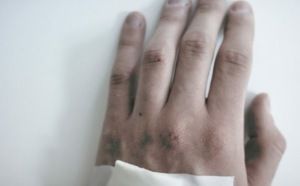News
First female case of Monkeypox reported in Denmark
This article is more than 3 years old.
WHO revealed last week that there have been 176 cases involving women across Europe so far in 2022 – about 1.1 percent of all cases

Women account for just over 1 percent of all cases in Europe (photo: Flickr/The Focal Project)
Earlier this month, the Sundhedsstyrelsen health authority made the Monkeypox vaccine available for men who have sex with men and for those who have a high number of sexual partners.
Now, Sundhedsstyrelsen can confirm that Denmark has registered its first case of a woman becoming infected with the disease – one of five new cases reported on Friday.
“This is the first Monkeypox case outside the known risk group in Denmark,” said the health minister, Magnus Heunicke.
“Statens Serum Institut [SSI] assesses that with the current number of incidents, isolated cases outside the risk group can be expected.”
READ ALSO: Health authority finally makes Monkeypox vaccine available to LGBT community
Pregnant, kids and weak immunes
WHO revealed last week that there have been 176 cases involving women across Europe so far in 2022 – about 1.1 percent of all cases.
Up until recently, all cases registered in Denmark involved men who have sex with men.
SSI evaluates that the risk of a serious bout of Monkeypox is low for all groups, except for pregnant women, children and individuals with a compromised immune system.
On August 12, Parliament sanctioned the purchase of a further 10,000 doses of Imvanex from vaccine producer Bavarian Nordic.










































